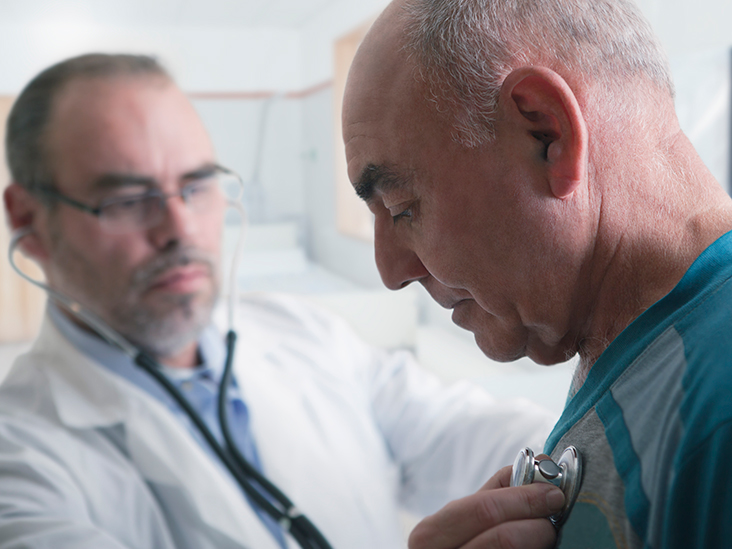

Medical insurance plans typically cover a wide range of healthcare needs. Depending on the provider, one may be able to receive several services or treatments under their plan. Medicare Part B is an insurance plan that covers medical care in the United States. Medicare Part B offsets about 80% of the total approved Medicare costs of specific services. Most such services are offered on an outpatient basis, which means that most of the services are performed in a doctor’s office or a clinic. Here is what Medicare Part B covers:
1. Clinical Research
Clinical research is a medical study that seeks to find a treatment or diagnosis for a particular disease. Under Medicare Part B, such clinical studies may include observations of new health analyses, procedures or protocols. Clinical studies are also known as R&D or drug development studies. For specific qualifying clinical research studies, Health Insurance (Medicare Part A) and Medical Insurance (Medicare Part B) cover certain costs such as tests and office visits. This is a great way to get your medical costs covered.
2. Ambulance Services
Ambulance services under Medicare Part B help individuals who have been injured, convulsing or have been diagnosed with a serious medical condition. The ambulance service is provided by a medical team of highly skilled medical professionals who can transport the patient to a hospital or the necessary health care facility.
It takes care of ground ambulance carriage when moving in any other vehicle that could cause danger to your health while you might require essential services from a:
-Critical access hospital
-Hospital
-Skilled nursing facility
Medicare Part B might cater for emergency ambulance transportation in either a helicopter or an aeroplane in case of rapid and immediate transport that the ground and motor ambulance might not provide. In certain cases, Medicare might also pay for medically necessary, limited and non-emergency ambulance transport in cases where you have obtained a written order from a doctor implying that the transport is medically necessary. For instance, a patient with congestive heart failure at a high risk of heart attack or stroke may require ambulance transportation to reach the nearest hospital should they develop acute symptoms.
3. Physical Therapy
This form of rehabilitation involves treatment and services provided by a physical therapist. You can receive physical therapy in an office, outpatient clinic or hospital. Under the Medicare Part B program, you are usually reimbursed 80% of approved amounts for various treatments and services rendered by a physical therapist. These approved amounts may vary depending on the treatment you received and the length of time you were under observation. This includes the cost of physical therapy and the cost of any examinations or tests which may be required during the physical rehabilitation process.
4. Provider services
Medicare Part B covers many physician and health care service providers, such as medical doctors, dentists and mental health experts. You will get reimbursed 80% of the approved amounts for these services. What does this mean? It means that the doctors or healthcare providers are responsible for calculating their fees for Medicare Part B reimbursement purposes. The reimbursement calculations are based on an average cost expected for specific procedures or medically necessary procedures. The costs of the procedure should include any surgical instruments or tools used in the treatment process. If a doctor or healthcare service provider charges you more than the average cost, you should seek reimbursement from Medicare Part B.
5. Durable medical equipment (DME)
Durable medical equipment refers to a wide range of health care equipment used by patients during their recovery process. Typical examples include diabetic testing supplies, wheelchairs, crutches and oxygen tanks. If you have been prescribed such equipment by a doctor or healthcare professional, Medicare Part B can cover the cost of your DMEs. For example, if you have a wheelchair from a hospital, Medicare Part B can reimburse 80% of the cost of your wheelchair. Under Medicare Part B, you also get reimbursed for durable medical equipment if any other insurance plan does not cover it.
6. Home health services
These services may include skilled home health care and physical and speech therapists. Under the Medicare Part B program, you can receive up to 100 visits of home health care services. The amount you could receive for home health care depends on your overall situation, but Medicare does not cover non-prescription medications such as pain relievers and cough medicine.
Skilled nursing and homebound services may be covered under Medicare Part B. Medicare Part B will cover home health services if you suffer from a chronic condition that requires skilled nursing or physical therapy services. In addition, you must have been hospitalized for at least 60 days within a particular calendar year. You are also required to have a prognosis of being chronically ill or disabled for at least 90 days.
7. Mental health services
Mental health care services under the Medicare Part B program include psychotherapy and psychosocial rehabilitation. These services are provided by a licensed physician or other certified mental health professionals to patients with psychological disorders. Under the Medicare Part B program, you can receive a maximum of 20 sessions with a mental health professional. The number of sessions may vary depending on your overall situation and whether you reside independently or in an assisted living facility.
Conclusion
Medicare Part B has been in existence for decades. Its purpose is to help older Americans with chronic diseases, and disabilities receive medical care, drug benefits and other forms of assistance. It is an excellent option for all Americans who have the misfortune of being old, sick or disabled. The Medicare program does not cover all medical expenses. Still, it covers most of the most common illnesses, chronic diseases, injuries and disabilities that may require attention from a doctor, anesthesiologist or health advocate.
